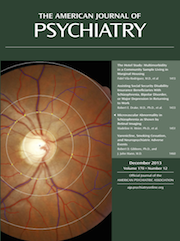Lovers Lame
David Levin, a government editor in his early forties, loses his job and has trouble finding a new one. He is single, has little confidence in his relations with women, but longs for a relationship. Finally, he embarks on one and is swept away only to be rejected. He is swept away again by a subsequent relationship only to be rejected once more. This time, he is faced with a frightening alternative: participate in his girlfriend’s kinky perversion, which puts him in a passive and feminine role, or she will terminate the relationship. He is tempted, sorely tempted, but declines.
This crisis is symbolically linked to the major theme of the book. David has cerebral palsy. Throughout his life, he has repeatedly been confronted with painful choices: accept helpless, passive dependency in return for being cared for by others or seek empowerment, autonomy, and maturity with the risk of loneliness and the certainty of repeated failures. This book is about the life of the disabled—their community and their longing, frustration, pain, rage, depression, hope, hopelessness, and fundamental humanity.
David joins and then becomes a leader of a self-help group of disabled persons (with cerebral palsy, spina bifida, multiple sclerosis, double amputation, deafness, blindness—the author goes out of his way to be inclusive). This provides an opportunity to present several character types and several styles of adaptation. His girlfriend, a member of the group, is an artist who has multiple sclerosis. She paints portraits of each of the other members, emphasizing both their individual characteristics and the stigmata of their disability. David is sensitive to critical differences, such as congenital versus adult acquired, but he is primarily sensitive to critical similarities. Their anger is pervasive—at employers, social agencies, doctors, therapists, families, the physically normal (they prefer “temporarily able-bodied”), each other, and, perhaps most of all, themselves. Their life challenges are the same as everyone else’s—career, relationships, sex, money, fun, creativity, spirituality, but for them each of these is further complicated by the two central truths of disability. There are things that others can do and that they cannot, and others see them as different, as belonging to a special stigmatized group. The burden is constant and at times overwhelming. Some are dramatically successful, many give up, and most live a mixture of the two.
The author, Robert Rudney, has cerebral palsy. However, the book is not simply autobiographical, although Rudney’s personal experiences have obviously enriched it. He is a Dartmouth graduate, married with three children, who developed a self-help group for persons with cerebral palsy. (The broader population of disabled persons in the fictional group in the book allows him to expand his perspective.) The text frequently segues into discussions of barriers, employment, economic statistics, and the like, but the story (and particularly the romances) moves it along and reflects what happens in life—that we are all more human than otherwise and that those fundamental human issues structure our lives.



